Hue is a city of historical origins – a history of great grandeur and color. Located in Central Viet Nam (and only five miles from the coast), Hue once was the home of royal families of the Nguyen Dynasty.

Tomb of Emperor Khai Dinh
The story of Hue would make one-heck of a novel. But it makes for an even more intriguing menu! You see, the cuisine of Hue is known throughout Viet Nam. And many of its signature dishes are available throughout the country. But why settle for an imitation when you can feast on the real deal?
Owing to its imperial background, the food of Hue is often referred to as “Royal Cuisine.” The term, “A meal fit for a king,” applies, quite literally. And it all started in the bewitchingly named: Forbidden Purple City.
The emperor, his family and all the citizenry, dwelled in the fortified, Forbidden Purple City. Ruling the throne, the emperor chose the finest chefs of Viet Nam to come and create the most dazzling dishes they could conjure. Utilizing local recipes and ingredients, as well as their own regional flavors, these chefs came up with dishes that pleased the palate but were visually stunning. Thus, the food of Hue became known for its aesthetic aplomb.
Not to be outdone by this royal cadre of cooks, the “commoners” of the Forbidden Purple City also stepped up their game. Many dishes you’ll savor on your visit are from traditional local recipes.
It’s said, “Variety is the spice of life,” and the kitchens of Hue take the adage to heart.
Here are a few of the delectables you can expect when visiting the historical city of Hue…
Bun Bo Hue:
Bo means beef in Vietnamese and so the title is a bit of a misnomer. While this rice noodle soup contains beef (brisket), it also makes good use of pork (hocks, trotter, congealed blood cubes, and strips of loin). The soup is seasoned with garlic, shallots, paprika, shrimp paste, lemongrass, assorted herbs, and lime. And while most foreigners are familiar with Pho (at least by name), in Viet Nam, Bun Bo Hue is known as a heartier and more delectable option. Globetrotting chef, Anthony Bourdain, was quoted as saying: “In the hierarchy of delicious, slurpy stuff in a bowl, bun bo hue is at the very top.” He went on to call the soup: “Lusty!”
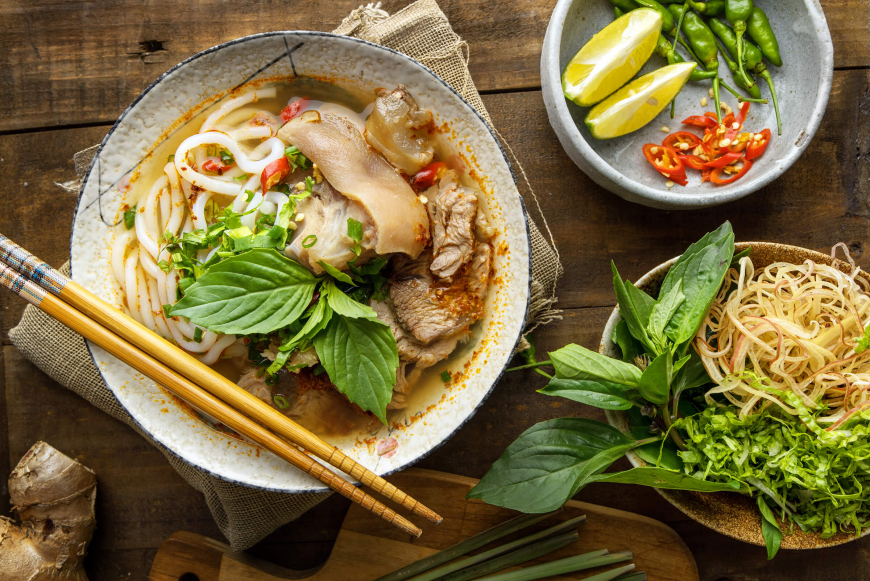
Banh Nam:
A dish that owes its origins to the imperial court. Wrapped in banana leaves, Banh Nam is like the pearl hidden inside the oyster. The flat, translucent, steamed rice dumplings are filled with minced pork and shrimp before being wrapped in their leafy sheaths. Dipped in savory fish sauce, these small morsels of goodness are scrumptiously addictive.
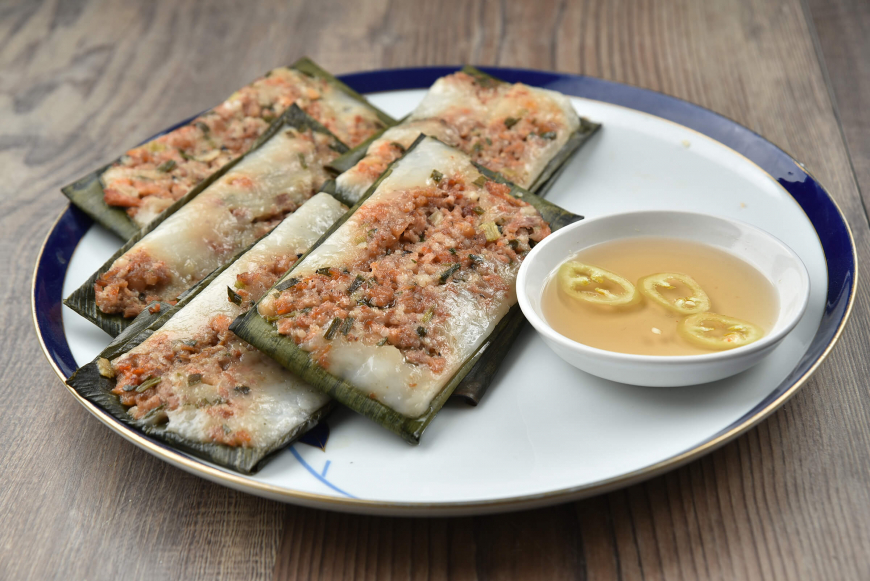
Banh Khoai:
It may remind you of a crepe or a thin crispy tortilla. These rice-based discs are served with pork, shrimp, egg and veggies. And of course, there is the sauce. Viet Nam boasts so many sauces, each coupled with different dishes for the ultimate taste explosion. Folded in half, you might say Banh Khoai resembles a Vietnamese version of a giant taco.
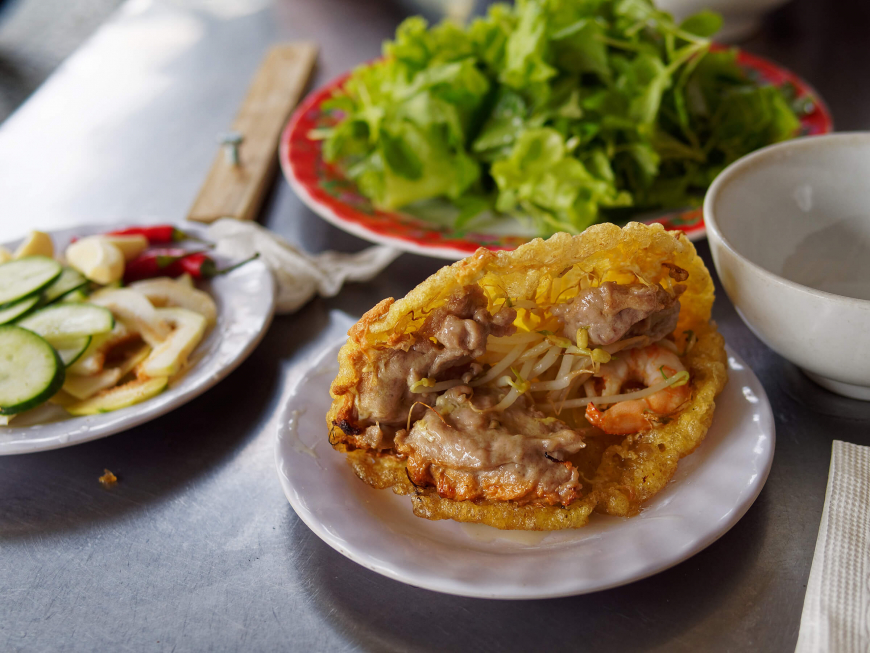
Banh Canh Nam Pho:
A bowl of thick transparent tapioca noodle soup, top with crab meat, prawn, quail eggs and fish sauce. While in Hue, make sure to have yourself a bowl of Banh Canh Nam Pho warm your heart this winter.
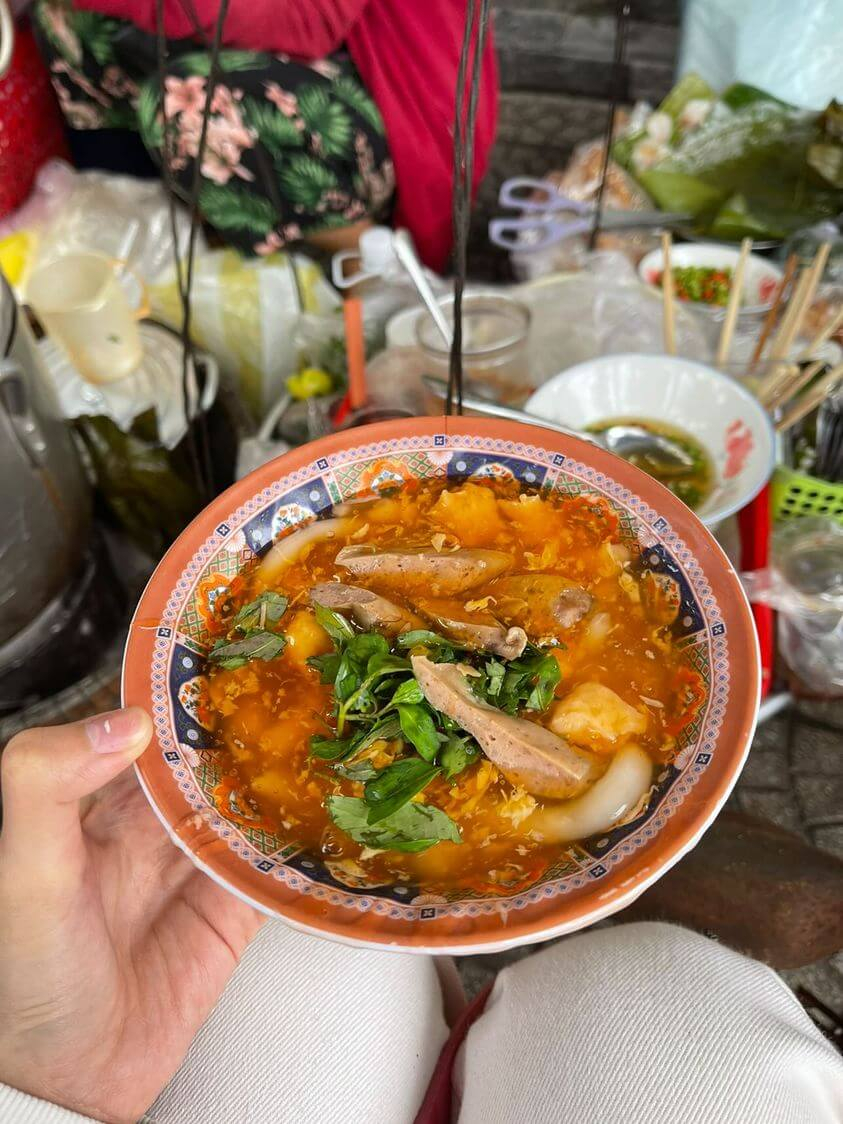
Source: Instagram – ngl.310
Banh Ep:
A brown, crispy cake is baked on a charcoal stove and served with fresh vegetables, pickled carrots then dipped in sweet and sour fish sauce.
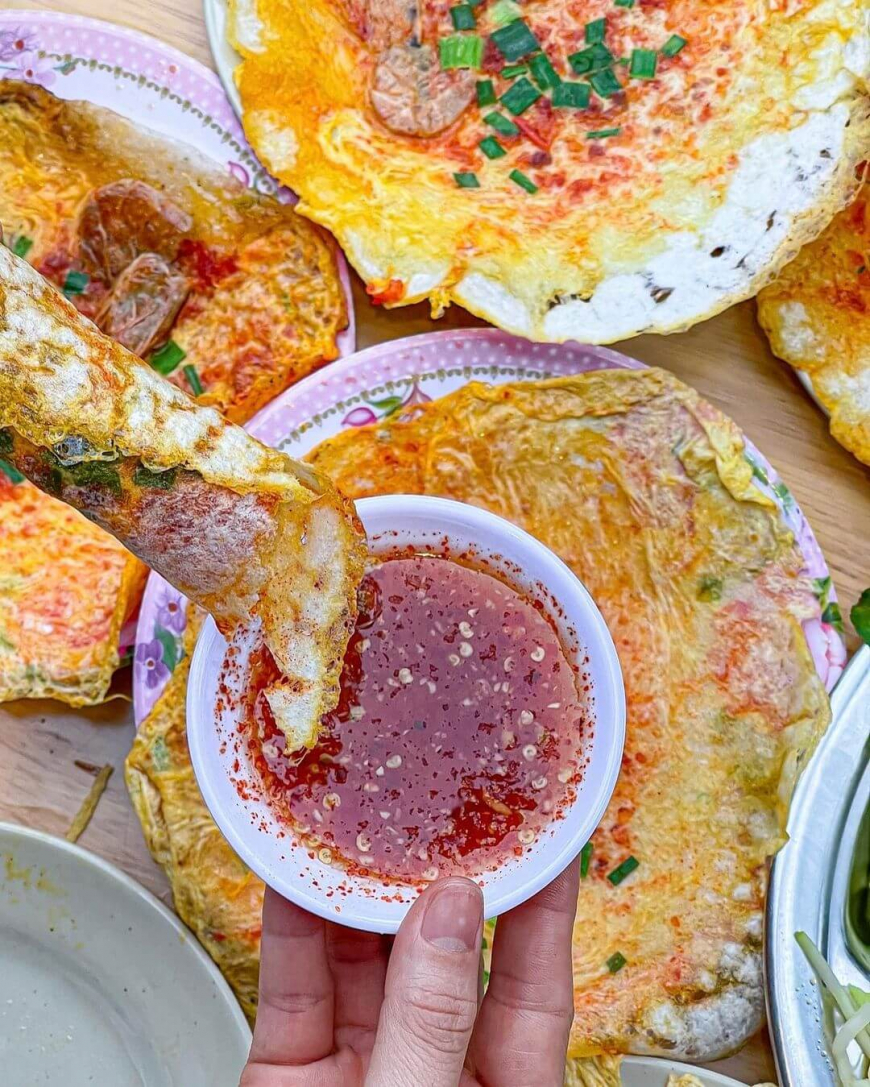
Source: Instagram – ryanfoodaholic
Bun Thit Nuong:
A simple dish with contrasting elements—cold vermicelli rice noodles and hot off-the-grill pork. Dappled with greens, herbs, spices, roasted peanuts, and Hue’s vaunted peanut sauce. Another dish whose origins are said to have originated in the royal kitchen.
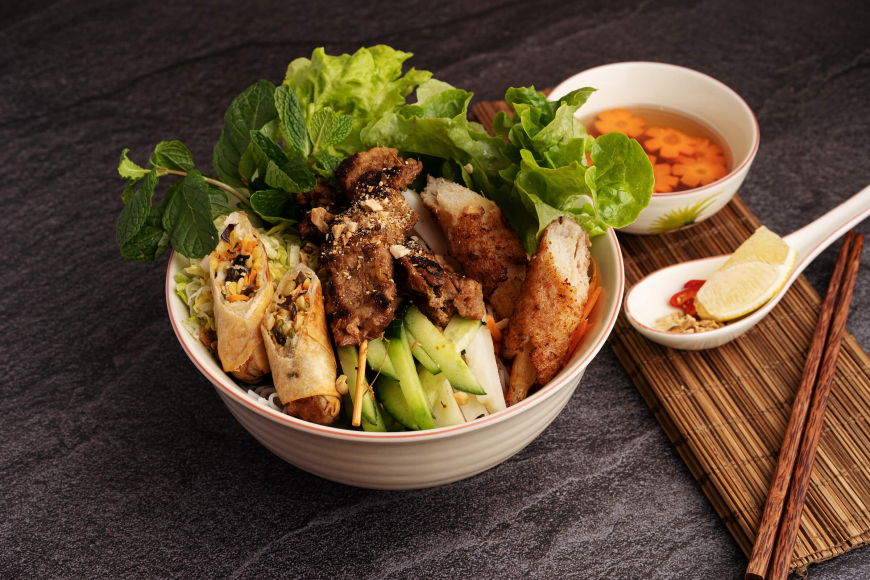
Com Hen:
This spicy dish is said to have peasant origins. A way to utilize leftover rice (in much the same way as Italians came up with pasta Fagioli or the Irish stew). The dish typically consists of baby clams (from the nearby Perfume River), vegetables, herbs and bean sprouts, pungent shrimp sauce with dashes of roasted peanuts, and pork rind strips.
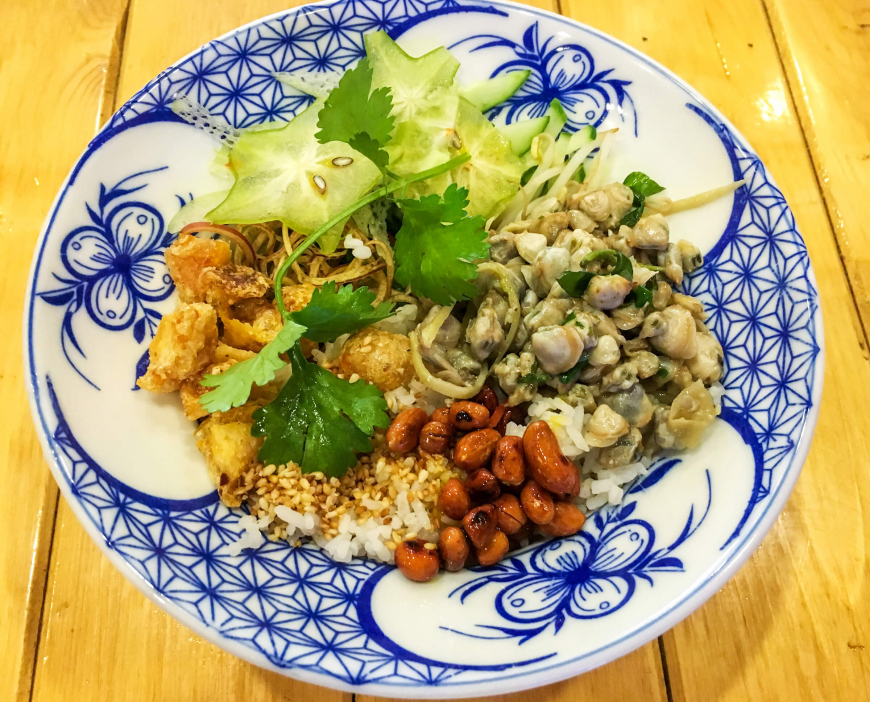
Nem Lui:
You can get these savory grilled pork skewers from vendors on the street or in almost any restaurant. Ground pork, marinated in fish sauce and shallots—myriad herbs and seasonings. Slowly grilled to perfection and dipped in special local sauce. If a corn dog had class, it would be Nem Lui. Typical way to eat Nem Lui is to wrap it in rice paper, along with herbs, pineapple, bean sprouts, green banana, chili and dipped it in a special creamy sauce.
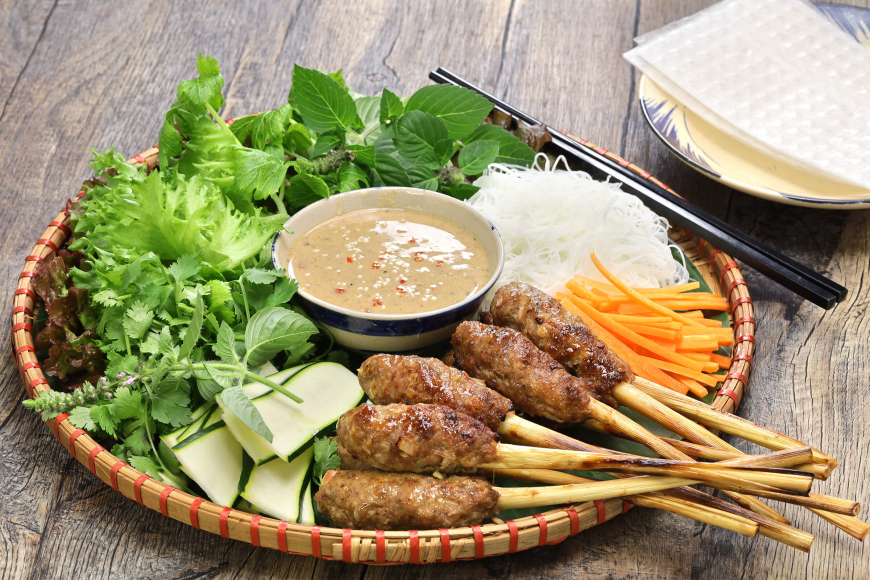
Com Am Phu (Hell Rice):
Among the specialties of the ancient city of Hue, this dish stands out not only by its name but also its taste. Containing fragrant white rice, charcoal grilled pork, shrimp, egg and herbs, all cut into strips. As simple as it be yet tastes like heaven.
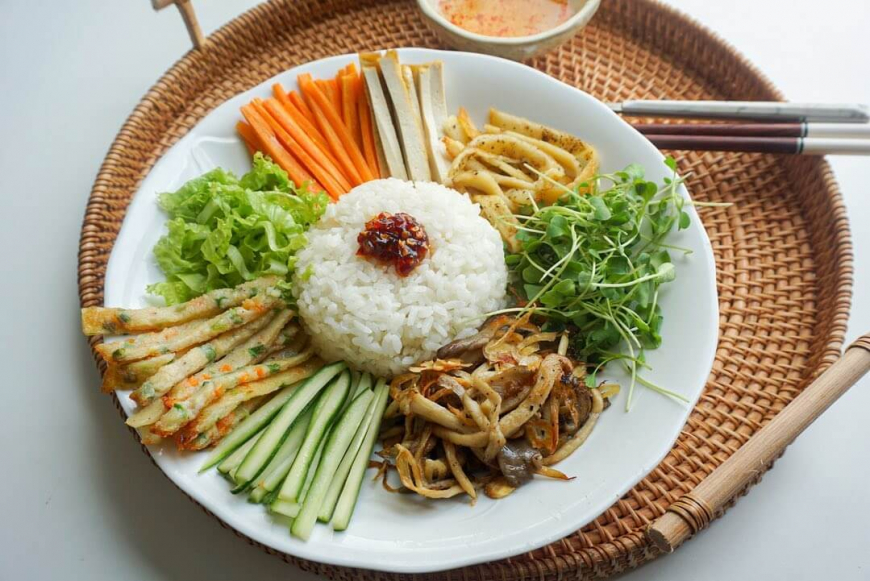
Source: Instagram – accnhi
Che Hem (Sweet soups of alleys):
Looking for dessert? Just come to the stall and enjoy colorful and exotic sweet soup. Visitors can freely choose from glutinous sweet soup with corn or with lotus seed to special grilled pork dumplings (Che bot loc heo quay), sweet soup with taro, etc.
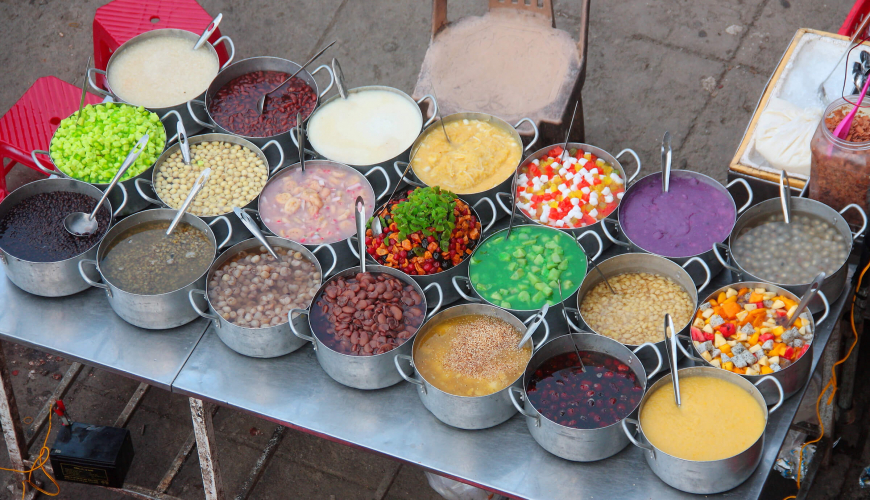
The city of Hue blends epicurean pleasure with historical relevance. Travel back in time. Eat like a king at pauper prices. Explore and expand culturally, while pampering your palate.

